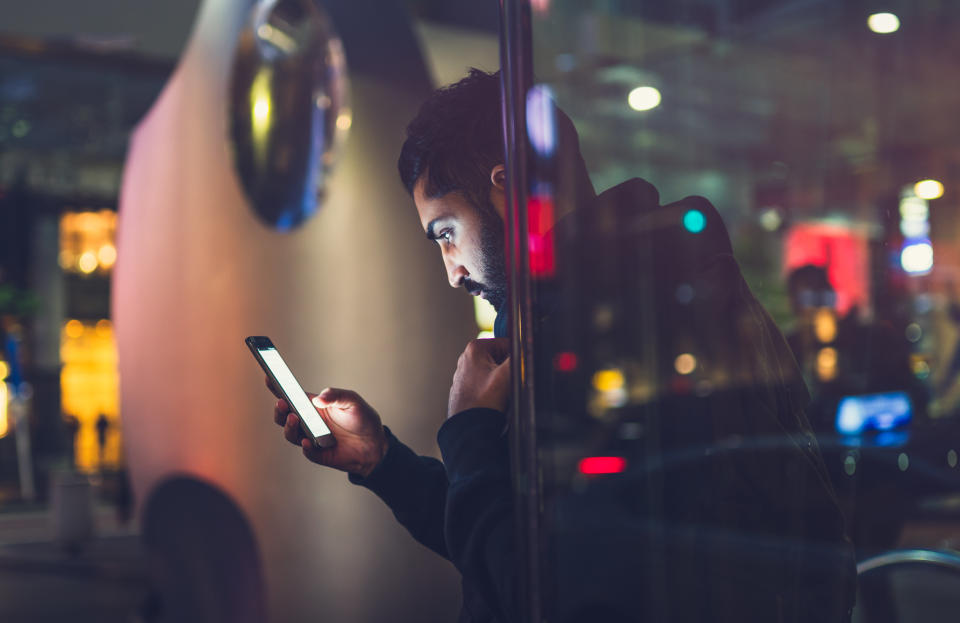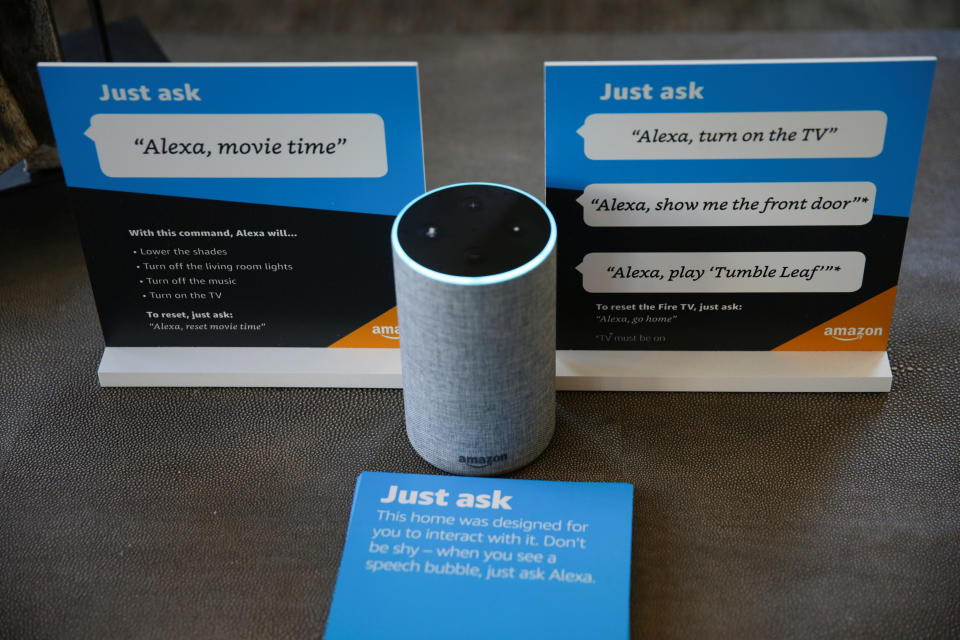Why people think their phones are listening to them
Every day, it seems like people are quitting social media for one reason or another — including fatigue and privacy concerns. Recently, one of my coworkers even told me he had stopped using Instagram because he believed it was listening in on his conversations.
His proof? He had been talking to a friend about classic cars, a topic he never normally discusses, and, a day later, saw an ad for those cars on Instagram.
Surely, my colleague thought, that meant Instagram, and its parent company Facebook (FB), were secretly spying on him. His suspicions are not unique. For years, consumers, wary of Big Tech's already-intimate knowledge of their comings and goings, likes and dislikes, have thought their smartphones, smart speakers, or social networks are secretly listening to their conversations. The goal? To target them with advertisements with pinpoint accuracy.
A quick Google search will point you to any number of articles and discussions about whether your devices are acting as digital spies for advertising companies. Check out Reddit and you’ll find a litany of threads talking about whether devices are listening to target ads at consumers.
But the truth is, tech companies can target us with ads using something far simpler than surreptitiously recorded conversations: our personal data. And we willingly give it to them every time we use their services.

How it works
Say you're talking to a friend about traveling to Hawaii to escape the frigid cold that has gripped much of the U.S. The next day, you're browsing Facebook, checking your email or surfing the web, and you see an ad for deals on flights to, you guessed it, Hawaii.
That can't be a coincidence, right? Your phone, or the Amazon (AMZN) Echo in your living room where you were chatting with your friend, or your Facebook or Instagram apps, had to be listening the entire time.
But they weren't.
In a recent study of popular Android apps, David Choffnes, assistant professor at Northeastern University's Khoury College of Computer Sciences, said he couldn't find any apps that were secretly recording conversations and sending them off to corporate servers to be processed and stored.
"We went into the study thinking that we would find cases of apps listening when they shouldn't or recording video or pictures when they shouldn't, and our study, at least, didn't uncover any evidence of that," Choffnes told Yahoo Finance.
Why we believe the myth
If tech companies aren't listening to us, then why do so many people see ads for topics they were only recently talking about with friends or family?
The answer to that is actually a bit more disconcerting than having your devices listen to you all the time. You're seeing those ads because companies like Facebook, Google (GOOG, GOOGL), and Amazon already know so much about you.

Facebook and Google, for example, likely know where you live, your age, gender, relationship status, your interests, or your political affiliation. Heck, they even know if you're a dog person, cat person, or if you prefer living in a place not constantly covered in pet hair.
Those two companies categorize everything they know about you to better serve you ads. If you're a dog lover, you'll invariably see ads for dog food. Big fan of cats? Then you'll see ads for scratching posts. But it's not just you these companies categorize. Your friends who use the services are also categorized.
Facebook, for instance, can make a link between you and friends you often interact with. So if your friend was recently traveling to Hawaii, liked a page about Hawaii or even visited a web page related to Hawaii with Facebook's code embedded in it, the social network might connect that back to you and start serving you ads about Hawaii.
Basically, companies that thrive on our information, like Google, Facebook and, increasingly, Amazon, are able to thoroughly understand our likes and interests based on the data we give them. They’ve become so effective at doing this that we've created elaborate conspiracy theories to rationalize how powerful their services truly are.
Heck, if you looked at how much tech companies like Google, Facebook, and Twitter know about you, you might consider ditching them entirely. I recently looked into my own Google history and found the company's mapping data has recorded everywhere I've been while navigating with Google Maps for years. I last went to Germany six years ago, but Google still had it stored.

It doesn't help that Americans have become less trusting of Big Tech in recent years. It seems as if tech companies have stepped into one problem after another when it comes to voice assistants.
In 2017, the website Android Police found that early versions of Google's Home Mini were defective and recorded everything around them until Google fired off a software update to fix the problem. It's important to note that consumer versions of the Home Mini were never impacted by the issue.
Then there are the high-profile issues involving Amazon's Alexa-powered Echo, including the time an Amazon customer in Germany requested all of his voice data from Amazon, only for it to be accidentally sent to another, unrelated person.
And, of course, there's Facebook, which, in 2018, was plagued by scandal after scandal including the Cambridge Analytica debacle.
What would happen if companies were listening?
It's also not too absurd to think that our devices are listening to us at all times. In fact, devices like Apple’s (AAPL) iPhones, Android smartphones, and smart speakers with voice assistants are always technically listening. But they are only listening for a wake word or phrase. In the instance of the iPhone, it's "Hey, Siri." For Google's devices, it's, "Hey, Google." And for Amazon, it's "Alexa."
But until you say those wake words, nothing you say around your devices is recorded, stored, or beamed up to the cloud.
In the case of Google and Amazon, things you say after activating your devices using the wake word can be used to serve you ads, but that's no different than those companies using searches you perform in their apps to serve you ads.
If tech companies were actually listening in on us without our consent, they'd be in for some serious legal pain.
"There is also a federal statute called the Wiretap Act, which prevents people from eavesdropping on oral communications, and that could be a cause of action for a potential plaintiff against the company that was eavesdropping on them," said Kendra Albert, clinical instructional fellow at the Cyberlaw Clinic at Harvard Law School.
If a company were eavesdropping on consumers without their knowledge, it would also have to contend with state laws against recording conversations without a person's knowledge or consent.
In other words, the potential benefit of selling you ads related to your conversation about Hawaii would likely not outweigh the risk of a company being charged with violating consent and wiretapping laws.
So feel free to chat around your devices as much as possible. Just, maybe stay off of them a little more, too.
More from Dan:
Email Daniel Howley at dhowley@oath.com; follow him on Twitter at @DanielHowley. Follow Yahoo Finance on Facebook, Twitter, Instagram, and LinkedIn.finance.yahoo.com/



